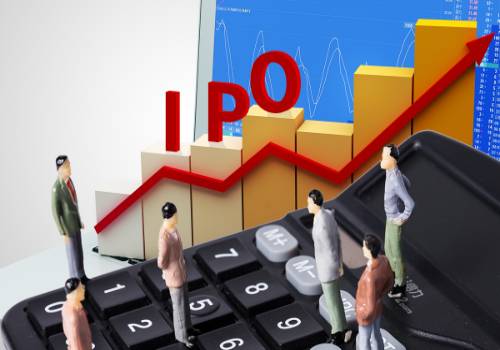Xinhua Headlines: So-called "de-risking" just another term for "decoupling" used by Washington, allies to contain China
* In essence, de-risking is hardly different from decoupling.
 【资料图】
【资料图】
* Washington"s paradoxical mindset -- while it needs China"s cooperation in some fields, it wants to continue its containment of it.
* The new word represents Washington"s renewed effort to appease its allies.
BEIJING, May 27 (Xinhua) -- Recently, "de-risking" has gained popularity among officials in Washington and some Western capitals. Previously used by America"s European allies in their China policy, the newly fashionable word has been officially adopted by the U.S. administration.
During the three-day gathering of the U.S.-led Group of Seven (G7) that ended on Sunday in Hiroshima, Japan, the leaders of the bloc said in a communique that they are not "decoupling" from China but "de-risking" instead.
For analysts and observers, the elaborately crafted term might sound milder than decoupling, but the two words are much the same thing in essence. They argued that the changed narrative is just another word game played by Washington and its allies to contain China.
This photo taken on Aug. 16, 2022 shows the White House in Washington, D.C., the United States. (Xinhua/Liu Jie)
FROM DECOUPLING TO DE-RISKING
In a speech on China held in March, European Commission President Ursula von der Leyen said that "our relations are not black or white -- and our response cannot be either. This is why we need to focus on de-risk -- not decouple." Following her remarks, senior U.S. officials have parroted the term "de-risking" in an attempt to glorify decoupling rhetoric.
U.S. President Joe Biden used the same language at a press conference after the G7 summit. "We"re not looking to decouple from China. We"re looking to de-risk and diversify our relationship with China."
Shifting from decoupling to de-risking, Washington"s changed tone on China comes as the United States has been struggling with multiple economic woes at home, ranging from the risk of U.S. default on debt to the financial turmoil exacerbated by problematic interest hikes and the sudden collapses of several banks. On Wednesday, the credit rating agency Fitch Ratings announced that it has placed the U.S. AAA-rated long-term foreign-currency issuer default rating on a "negative watch" as the debt ceiling deadlock continues.
Meanwhile, decoupling from the world"s most promising and dynamic market is unwise and unbearable for U.S. companies. Ditto for American consumers. With affordable Chinese products, they can avoid a more severe cost of living crisis.
Figures also show that decoupling from China goes against the trend. U.S.-China trade in goods hit a new record of 690.6 billion U.S. dollars in 2022, according to data published by the U.S. Bureau of Economic Analysis in February.
A container ship of China"s COSCO Shipping docks at a container terminal of the Port of Long Beach in California, the United States, Aug. 20, 2021. (Xinhua/Gao Shan)
William Reinsch, a senior adviser at the Center for Strategic and International Studies (CSIS), a Washington-based think tank, was quoted by Bloomberg as saying that the latest data showed that "consumers have minds of their own."
Under such circumstances, Washington has attempted to beautify its decoupling rhetoric, making it more acceptable to the U.S. public, especially U.S. companies. Such a change in language by the U.S. administration also reflects its paradoxical mindset. While it needs China"s cooperation in some fields, Washington wants to continue its containment of it.
Moreover, the use of this new word represents Washington"s renewed effort to appease its allies. If decoupling goes too far, it will not only drag down the U.S. economy but also drive away its allies, an opinion piece published by Politico warned.
Over the past years, even Washington"s allies have questioned America"s hostile policies toward China. French President Emmanuel Macron said the European Union and China should work together to avoid "decoupling and breaking the chain."
A recent research report by an Austrian think tank estimated that if decoupled from China, Germany will see its gross domestic product (GDP) drop by 2 percent per year, equivalent to a loss of 60 billion euros (some 65 billion dollars).
"Australia doesn"t want to decouple from China. What Australia wants to do is to improve our trading relationship with China," said Australian Minister for Trade and Tourism Don Farrell in a recent interview with Xinhua.
By tempering its harsh narrative with a softer one, the United States aims to paper over cracks with its allies. "The speech was replete with support for the EU position," tweeted Emily Benson, an expert on trade at the CSIS, referring to U.S. National Security Advisor Jake Sullivan"s speech at the Washington-based Brookings Institution in April, where the official pressed for de-risking.
Customers shop at a Costco store in Foster City, the United States, Jan. 12, 2023. (Photo by Li Jianguo/Xinhua)
REAL RISKS
"A substantial change in policy?" asked Alex Lo, a columnist for The South China Morning Post. "I doubt it. It just sounds less belligerent; the underlying hostility remains."
A change in words does not mean a difference in action. In essence, de-risking is hardly different from decoupling.
Washington has been stepping up its siege of China in high technology and other areas. Recent moves include advancing the China competition bill 2.0 to the heated discussion on the so-called resilient supply chains of semiconductors at the G7 summit and from advocating "friend-shoring" to restricting U.S. investment in China.
In the view of Washington and some of its allies, the risks they face are induced by China, and only by containing China can they eliminate them. Such a hegemonic mentality creates real risks for the world.
"The biggest risks facing the world today are: the hegemonic act of using military advantage to launch barbaric invasions of vulnerable countries such as Afghanistan, Iraq and Syria, the bullying act of undermining the principle of market economy and international trade rules by overstretching the concept of national security and wantonly going after foreign companies, and trying to turn back the wheel of history by hyping up "democracy versus authoritarianism" narratives and dragging the world back to the era of the Cold War," said Chinese Foreign Ministry spokesperson Wang Wenbin.
"Clearly, none of these risks come from China. They all come from a handful of countries that have sought to pin various labels on China," Wang added.
Washington"s allies might think they will benefit from following America"s foreign policy. But the United States is so self-serving that its allies have become half accomplices and half victims.
The Plaza Accord signed in 1985 caused the Japanese economy, then the world"s second-largest one, to plummet into its "lost decades" before Germany"s Siemens and France"s Alstom fell victim to U.S. super-suppression.
A recent prime example is the U.S. Inflation Reduction Act. Granting green incentives and tax breaks for companies that produce in the United States, the act has badly hurt Europe, with more European companies tempting to relocate to the United States.
Croatian political analyst Mirko Mavric said that "the risk for Europe is to become an extended arm of the U.S. interests," adding this has always been fatal for Europe, as Americans think first of all about themselves and their interests.
"By dragging the G7 bloc to suppress China under the pretext of de-risking, the country is deliberately undermining free trade and the global economic division of labor system," said Japanese scholar Kazuteru Saionji, a visiting professor at Higashi Nippon International University, who expressed the belief that the United States is peddling imaginary threats in its own version of the world order.
Compared to the United States, China has brought the world opportunities, cooperation and stability. According to the General Administration of Customs, China"s total goods trade reached a record 42.07 trillion yuan (6.2 trillion dollars) in 2022, up 7.7 percent year on year, topping the world for six consecutive years.
China is a major trading partner of more than 140 countries and regions. The International Monetary Fund forecast that China"s contribution to global economic growth will stand over one-third this year.
"It is really not wise to consider wholesale decoupling (with China), for which we will pay a very high economic price over time," said Craig Allen, president of the U.S.-China Business Council, adding that even for the technology sector, "a better job" could be done "to narrow the definition of national security and allow greater technology, talent and capital flows between the two countries."
For Volker Treier, head of foreign trade at the Association of German Chambers of Industry and Commerce, there is no real alternative to China. Neither the planned transition to renewable energies nor the transition away from combustion engines would progress if there was a decoupling from China, he said.
(Video reporters: Ji Ze, Yang Yiran, Yu Fuqing, Yao Bing, Shen Danlin, Lin Lin, Li Ziwei; Video editors: Zhang Yucheng, Li Qin, Zhou Yang)
关键词:





















